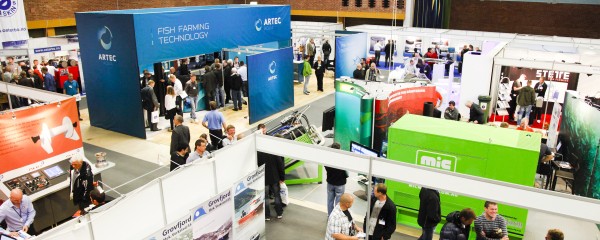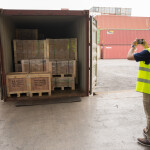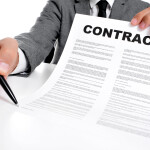20
Jun 2012
40 Tips to Survive a Chinese Trade Fair
Beyond the obvious networking, learning, and sales opportunities, trade shows can also be an excellent place to launch a new company or product. Trade fairs can be extremely effective for making face-to-face contacts, identifying suppliers, and finding out how business really works in China. The Internet is not doing anything at all to displace face-to-face events. In fact, demand for face-to-face is growing as a result of the Internet facilitating transactions and opportunities, and extending the show’s reach before and after it occurs. Your visit to a trade fair in China can cost a lot of money including air fares, hotels, etc. Don’t waste your valuable time and money at China trade fairs by not going well prepared.
- Preparation
Goals: Set objectives first. Knowing what you need to accomplish before, during, and after the show is the first step toward success. Set specific goals for supplier leads and for gathering industry information.
Products: List all the products that you seek to purchase and the number of units you plan to purchase of each.
Prices: Know the retail and wholesale market prices for the goods in your home country. List the highest price you can afford to pay for each item and still get a worthwhile return.
Regulations: Be familiar with regulations on the products that you seek to import into your own country or elsewhere. Duration: How can you choose between staying 1 or 3 days on the fair ? Check the comments of the previous year and the number of exhibitors.
Prioritize: Have a first overlook at the show and write on the map what can match your checklist.
Familiarize: Make a note of the show’s hours, locations (if exhibits and events are staged at multiple venues), and the schedule of events.
Register: For the big fairs, you can normally do this online; it will save you a lot of time on the day.
Appointments: Contact people you would like to meet before you go. Organize your appointments around the trade fair.
- Packing
Samples: If you have specific products or designs you want sourcing make sure you take multiple copies of drawings and/or photos and even samples.
Business Cards: Make sure you bring several hundred business cards. Everyone will ask for one. If you don’t have them they may not be prepared to give you any catalogues or will be very guarded when they talk to you. Consider having a bilingual business card, and add the country and international dialling code information to the address and telephone number.
Cell Phone: Make sure that your provider’s services are available in China. Consider buying a SIM from a China Mobile retail outlet when you arrive.
Case on wheels: Catalogues can weigh a lot and you will be exhausted half way through the day carrying them.
Shoes: Bring a comfortable pair of walking shoes and lightweight outfit.
Hotels: These are normally very expensive during the fair and fill up quickly, make sure you book well in advance. A useful website to do this and to see what is available is C-trip (http://english.ctrip.com/) ; if there are a few of you, you might also consider renting an apartment for the duration.
- Arrival
Currency exchange: Normally better to do this at local banks, or use ATMs. Converting currency at the airport or your hotel can be expensive.
Arriving a day early: Not a bad idea to get fully oriented (ask your hotel reception for a map of the city), confirm appointments, and rest.
Advice and tips: You will normally meet a few veterans who have attended the trade fair in the past, a good way to get advice, tips, and general exhibition information.
- During the show
Traffic: Traffic is normally very bad during a fair. Ask your hotel about whether they provide a free shuttle service, or consider using the metro if available.
Catalogues: Do NOT rely on the fair’s catalogues. They are badly laid out and frequently don’t give any descriptions or contact details of the companies exhibiting. Also, don’t just grab every brochure that’s offered to you. Collect the information that is of interest to you or that could be valuable to others in your company.
Be realistic: When you arrive at a show, the sheer enormity of it can be very daunting and there is a temptation to try and visit as many booths as possible. Don’t do it to yourself. This is why the planning stage is so important.
Division of Labour: If co-workers are attending the show with you, divide the show up into sections.
Interpreters/Translations: Although many booths for the larger export trade shows will have interpreters it may be wise to have your own, well briefed, interpreter. For the smaller shows it is essential. You might also require a translation service to handle documents. Try to line up providers well in advance of your need for their services. Be aware also that most of these so called interpreters who hang around outside these fairs will be limited in their ability to serve your needs.
Booth Names: In many cases ignore the name of exhibitor in the booth entrance or overhead title. Many companies sell their booth allocation on to other companies so it is not unusual to see a booth sign like “Guangdong Leather & Animal Products Company” and then find a totally different company selling automobile parts!
Trading Companies: Many of the booths are trading companies masquerading as manufacturers. If you don’t want to deal with trading companies, start by asking them details of their factories and ask them if they own them. If you don’t get an emphatic positive answer, or if they say they are part owners in a joint venture it probably means they are a trading company.
- Meetings
Notebook: Take a large notebook and write the notes of each meeting.
Location: Write the booth number and hall number against each entry. In some shows the booths all look very similar and finding a particular booth the next day for a return visit can be very time consuming.
Stapler: Take your own small one with a good supply of staples. Staple their business card against the notes. Ask for two cards:One to staple into your notebook and one to staple to their catalogue. It will save you hours of work later.
Answers: You might have to push a little bit to get the answers for questions you really want. Sometimes booth staff simply do not have the answers you require. In that case, ask who you should contact at their firm for follow up.
Volumes: Most exhibitors will ask you fairly quickly what size quantities are you looking for. Be prepared to answer these questions. If you talk in very low numbers the chances are their interest will disappear very quickly. Chinese exporters are geared up to low prices but high volumes.
Quality: Make sure you tell the supplier exactly what quality level you are expecting.
Quality Control: Ask the suppliers what quality control procedures they have and use. Tell them that you will need to do your own quality control as well during production and prior to shipment. If they do not accept this, you should avoid dealing with them.
Food: f you are not prepared for Chinese canteen type food, take your own sandwich from the hotel. Large shows, such as the Canton Fair, now have a McDonalds but you will have to wrestle 2,000 other people for the same Big Mac. Try not to find food between 12.00 and 14:00 unless you are a masochist.
Leaving: If you don’t want to wait for an hour in a taxi queue, leave early.
- After the Fair
Report: Even if you don’t have to prepare a formal report, spend some time organizing your thoughts on paper for future reference.
Follow-up: Be prepared for a long delay after the fair before you get any response. Chinese companies are notorious for failing to respond after a fair. You may need to follow up in writing several times.
Factory visits: If you want to see their factory, be prepared to stay on for a week or two. There may be many other customers doing the same and they may not be able to receive you for some time.
- Limitations
Products: The products on display probably do not represent the full range of goods available on the market.
Discussions: While trade fairs give you an opportunity to make face-to-face contacts with many people, both exhibitors and buyers are rushed, which makes meaningful discussions and negotiations difficult.
From Chinasaavy
– See more at: http://www.sbeintl.com/































